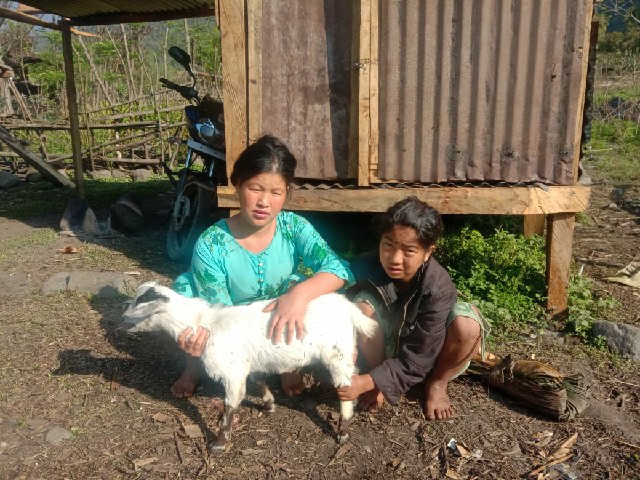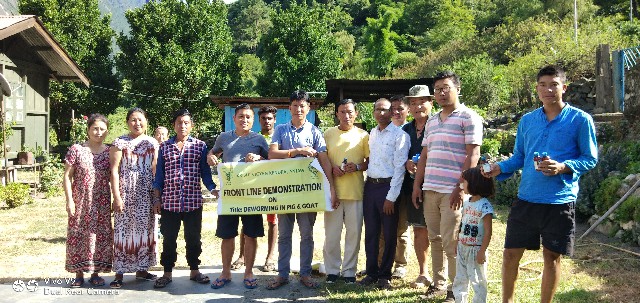Effect of Schedule deworming on body weight gain in Growing goat Kids
Production of meat depends on numbers of healthy kid born and its body weight gain at shorter interval. Among several factor, infestation of gastro-intestinal parasite at younger age is major cause of poor body weight gain and smaller body size of goat in northeast India causing considerable economic losses as a consequence of mortality in infected animals and reduced weight gain. Anjaw district is humid and high rainfall area and goat reared in extensive system helps to multiply, transmission and infection to goat especially young one. So, keeping view in mind, a frontline demonstration on farmers farm was conducted to aware the farmers about economic losses and improve the body weight gain in growing kids of Anjaw District. Demonstration was conducted as per the technology developed by ICAR RC NEH Region, Meghalaya. The kids were dewormed with levamisole and oxyclozanide combination at the age of 21 days to up to marketable age (12 Month). Schedule deworming of growing kids resulted improve in body weight gain at marketable age (12 months) and improve the health condition. The average body weight of scheduled dewormed group of kids was 14.26 kg, however, it was reported 12.55 kg. Schedule deworming improve body weight gain by 13.26 percent over control group. Schedule deworming reduced mortality in kids resulted total body mass in dewormed group was reported 239.98 kg in comparison to control group i.e. 173.9 kg. Due to higher body weight at marketable age schedule dewormed group fetch higher price resulted higher net return (Rs. 4991) than the control group (Rs. 4392.5) higher by 15.90 percent than the control group. The farmers were satisfied with the results of the experiment however, desired to supply dewormer at regular interval. Thus, it is concluded that the schedule deworming of growing kid can help to get higher return from goat husbandry in Namsai district of Arunachal Pradesh.

